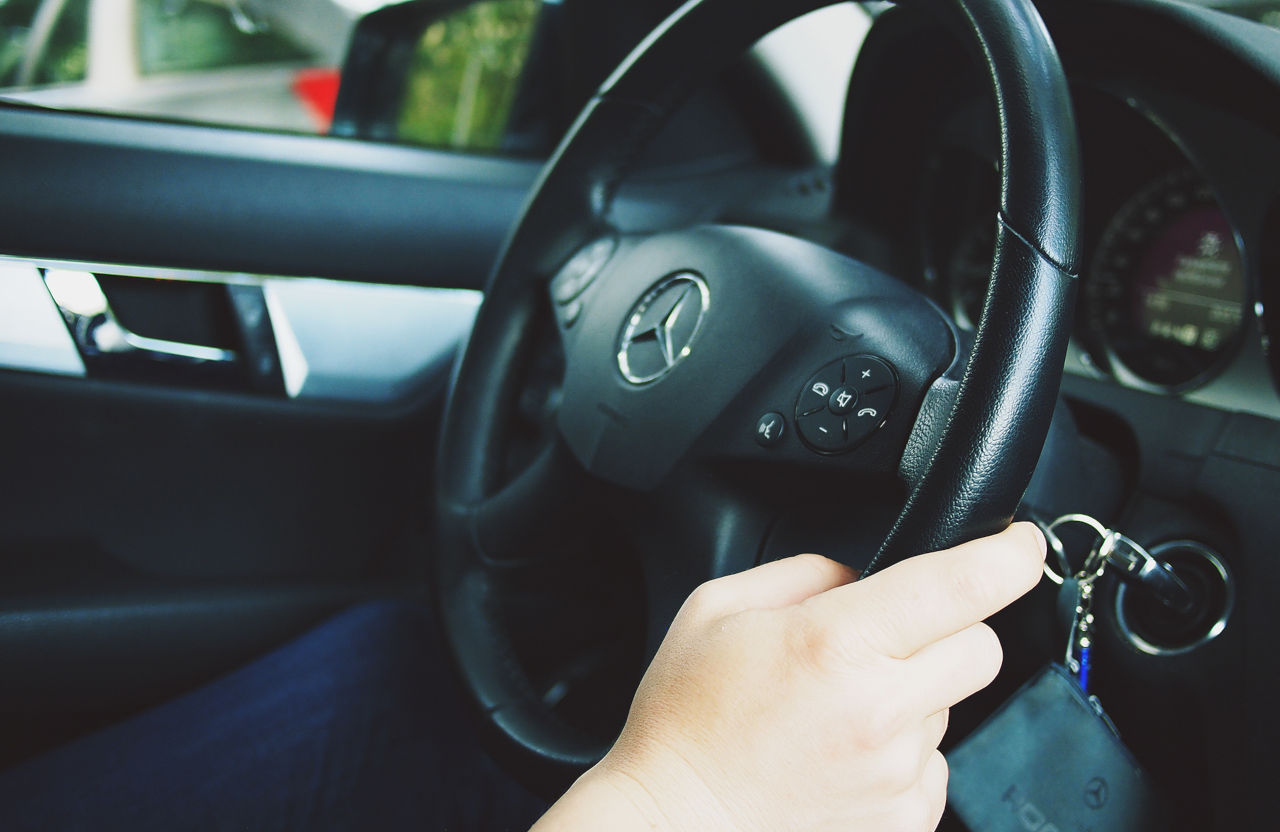When it comes to buying a car, there are plenty of ways you can do it. From PCP finance to personal loans, to buying a car on hire purchase, there are loads of finance options out there.
Leasing vehicles has always been popular in the US and has now started to catch on in the UK too. This is mainly because Personal Contract Hire (PCH) means you can drive a better car without worrying about depreciation or resale values. Businesses often benefit from leasing vehicles rather than owning them, and as an individual, some of the advantages will apply to you, too.
Our ultimate guide to personal car leasing will help you understand the benefits and disadvantages of choosing a personal contract hire. In this guide, we cover where you can find the best PCH deals, and how to properly compare leasing against other finance and PCP offers, or buying your next car outright.
Personal car leasing explained:
- An introduction to personal car leasing
- How does personal car leasing work?
- The best personal car leasing companies
- Personal car leasing: the deposit explained
- Used car leasing
- Personal car leasing with bad credit

An introduction to personal car leasing
Personal Contract Hire (PCH) is effectively a long-term car rental agreement. If you’re eligible for a car leasing contract, you’ll pay a deposit and a monthly cost for a vehicle.
At the end of that time, you give the car back and walk away.
Simplicity is a big benefit of personal car leasing. Once you have paid a deposit, your monthly costs are the only outlay you have for the length of the contract.

The cost of PCH is lower than buying or financing a new car. So, you can choose from more expensive and premium options.
In fact, leasing actually makes more sense if you’re looking at higher-end cars rather than a small family hatchback. You can benefit from the normal manufacturer warranty and you don’t need to worry about an MOT for the first three years.
Usually, the leasing or finance company will also provide your road tax and breakdown cover and servicing will sometimes also be included.
If you own your own a VAT-registered business, leasing allows you to deduct the cost from your profits and reclaim 50% of the VAT rather than going through personal leasing. This makes it a popular option for company cars.
You might find quotes via comparison sites that are aimed purely at business customers, and therefore don’t include the VAT cost, making them seem cheaper – make sure you watch out for this!
PCH leasing does mean you’ll never actually own the car or be able to get any money back from the sale of it. Your contract will have an agreed mileage, with costs for any excess distances you cover.
The cost might also increase if you incur any damage or the car is written off, although most leasing companies will abide by the British Vehicle Rental & Leasing Association’s fair wear and tear policy.
What types of personal car leasing are there?
Although the principles of leasing a car will stay the same, there are some slight differences depending on the provider.
There are a variety of online brokers who will take your details and then match you to an appropriate leasing company, effectively working as the go-between to make the process easier.
However, car dealers can also offer leasing as part of their car finance options. Whether it’s a franchised or independent dealership, these will usually be through specialist leasing companies.
Even if it’s offered under the name of the car manufacturer, it’s less common than other dealer finance products, so not everyone will provide it. It’s worth checking and then comparing against any online deals you’ve researched.
One way to find deals is to compare offers on Moneyshake, which could see you find the best possible leasing rates available.
How does personal car leasing work?
There are several conditions to personal car leasing in the UK. We’ve listed some of the most common below:
Length of contract
- The hire contract will generally last between 2-5 years, and you’ll need to undergo a compulsory credit check.
Deposits & Insurance
- A deposit will be required before the car is supplied, and you’ll need valid car insurance as with any vehicle.
Employment
- Some leasing companies will require you to be in full-time work, but others just need proof of regular income or benefits that allow you to afford the monthly payments.
Car modifications
- You won’t be able to modify the car in any way without permission, so it’s important to consider any changes you might want before deciding on a lease.
Mileage Limits
- If you exceed the agreed mileage, the cost can range from 3p a mile to as much as 50p. It depends on your particular agreement, but a typical cost will be 10p per mile.
- UK drivers average around 7,900 miles annually, that cost could add up. You may also need written permission if you plan on taking your car abroad on a trip.
Admin fees
- Most brokers and leasing companies will charge an administration fee, typically around £199, so don’t forget to take that into account.
What about paying your contract off early?
One major difference between Personal Contract Hire (PCH) and Personal Contract Purchase (PCP) is that you generally can’t end a car leasing agreement early with a PCH.
With PCP car finance, you’re usually able to pay an additional cost to end the contract earlier than planned if your financial circumstances change. With PCH, the only way to end a PCH early is to pay off the total lease costs in full.
If you miss payments on a PCH, then you’ll be charged late payment fees. Lenders can take their car back fairly quickly to avoid any depreciation while you settle your bills. You will also get a default mark on your credit file.
If you do start to struggle, it’s worth speaking to the finance company straight away as they may offer you lower payments over a longer lease, for example.
Car leasing deals and offers – where to find them?
With any major financial decision, the time you spend thoroughly researching the best deal can save you hundreds, or thousands of pounds.
There are various personal car leasing comparison services and tools that allow you to start comparing offers before you get into specific details on deposits and mileage agreements.
Good places to look include:
What makes a personal car lease deal good or bad?
There’s more to a good PCH deal than just finding the lowest monthly payment.
Key factors include ensuring you have a suitable mileage allowance to avoid extra charges, and whether the contract includes potential costs such as servicing.
It’s hard to know whether you’ll still be happy with the car you’re hiring in 3 or 4 years, but you may want the option to extend your leasing term. If you do, the lower value of the car should mean smaller payments.
Taking all that into account, one of the prime attractions of a personal car lease over buying your next vehicle is the cost. So, you need to understand the payment plans on offer.
The payment plans are often laid out as Deposit + Term. For example:
- If you saw a PCH for ‘9 + 48’, you know that you would need a deposit equivalent to nine months, followed by 48 monthly payments.
- This is because the first number indicates how many multiples of the monthly cost is required as the deposit, and the second number indicates the total term of the contract.
Our top tips for finding a PCH deal include:
- Be open to a variety of car makes and models. Car brands often run special offers and promotions
- Pick a car that will hold it’s value
- Choose cars with lower running costs as this is taken into account for your monthly payments.
- Pick a company that is a member of the British Vehicle Rental & Leasing Association. They provide industry guides on things like wear and tear and can act as an intermediary between you and another member if there is a disagreement.

Your contract is there to make the terms clear to all parties, particularly if there is a problem or dispute. So, you should be able to read through your personal car lease and understand the key points.
For hire purchase and PCP offers, the interest on the amount you’re borrowing against the value of the car is advertised as the APR rate, typically around 4-7%. Although many manufacturers do offer 0% deals.
With personal car leasing, there’s no interest charge, which means you’re simply paying off the depreciation. Typically, you’ll pay under £200 per month to drive a smaller hatchback or SUV on a 2/3 year contract. Go for a 4-year agreement, and you could be driving a new small car for just over £100 per month. Close to £400, gets you a new luxury car on your driveway. But, remember that over the total agreement, including a deposit, all this adds up to around £16,000 without the option to own your car at the end of the PCH.
The best personal car leasing companies
There are a wide variety of personal car leasing companies operating across the UK, so it’s worth looking closely at the company you’ll be signing with.
You should check that they are a BVRLA leasing broker, and SAF Approved, as this will give you some reassurance.
Some of the top PCH providers in the UK include:
- Contract Cars
- Leasing.com
- First Vehicle Leasing
- Allcar Leasing
- Lings Cars
- Select Car Leasing
- Intelligent Car Leasing
Picking the best personal leasing company will come down to your requirements, as some will be better for specific cars, and others can provide additional features such as including servicing in your payment plan.
Personal car leasing: the deposit explained
When it comes to lowering your monthly payments, paying a higher deposit makes a big difference. Technically, it’s an initial payment, as it’s non-refundable, and the minimum amount will be set by the finance house or leasing company.
Personal Contract Hire generally requires a smaller first payment than other finance offers as you’re not paying anything towards owning the vehicle in the future. It’s generally calculated as a multiple of your monthly payments.
The total amount you will pay stays the same regardless of your deposit, but paying a larger amount upfront simply means there will be less to pay for the remainder of your contract.
No-deposit car leasing is becoming more popular as it doesn’t require an initial upfront payment. To qualify you will need an excellent credit rating score. No deposit car leasing will mean higher monthly payments across the term of your personal car lease, but if you pass the credit check process, it means you can jump into a new car straight away, without having to save for a deposit.
Used car leasing
New cars are the main preference for people wanting to lease a car but used car leasing is a cheaper solution if you don’t mind something with a few miles already on the clock.
A number of leasing companies will supply ex-fleet and used rental cars.
This is a good option if you want to focus on value for money as the initial fee and monthly payments will be significantly lower than for a new model of the same car.

For example, one leasing company currently offers a new BMW 1 Series Hatchback from £250.58 per month over 48 months with an initial fee of £2,255.22.
But a used, lower specification version of the same car will cost £175.28 per month for the same contract length, and with a first payment of £1,577.52.
While the new car payments will cost you £14,283.06 in total, the used BMW comes in at £9,990.96.
Leasing a used Volkswagen Polo 1.0 litre hatchback costs from £171.13 for a new model, with a first payment of £1540.17.
Switch to a used example, you’ll pay £142.36 and £1,281.24 for the same length of contract. Which is a £1,639.89 saving.
Personal car leasing with bad credit
If you have a bad credit rating, it’s still possible to enter a personal car leasing agreement.
When you’re applying for any PCH deal, the lease or finance company will perform a credit check with a reference agency such as Equifax, Experian, or TransUnion.
Most lenders will look for a good or excellent score to accept you straight away, although credit scores are not the only criteria.
The downside is that if you’re approved with bad credit, you’ll probably find the car finance options available to you are more restricted, and your payments may be higher.
Some will also recommend going for cheaper used car leasing, rather than premium models. But this does vary between leasing companies.

The upside is that if you accept and make all the required payments, this will improve your credit score.
Other alternatives are available. Some finance providers will accept joint applications with a spouse or family member who lives at the same address as you.
This means both applicants’ incomes are taken into account, but does also means that both parties must fulfil the contract even if you split up from your partner.
Taking out finance on behalf of someone else is forbidden by finance providers, but a few will accept having a third party as a guarantor. Again, any defaults will affect both you and the guarantor.
Should you choose personal car leasing?
There are advantages and disadvantages to personal car leasing. But if you’re looking for a relatively quick and simple way to get behind the wheel of a new car, a Personal Contract Hire offer can be a good solution.

Should you sell your car?
Want to learn more about the best ways to sell your car?Check out more of our guides here, covering everything you need to know about different finance schemes, and what they mean for you as a car owner.

